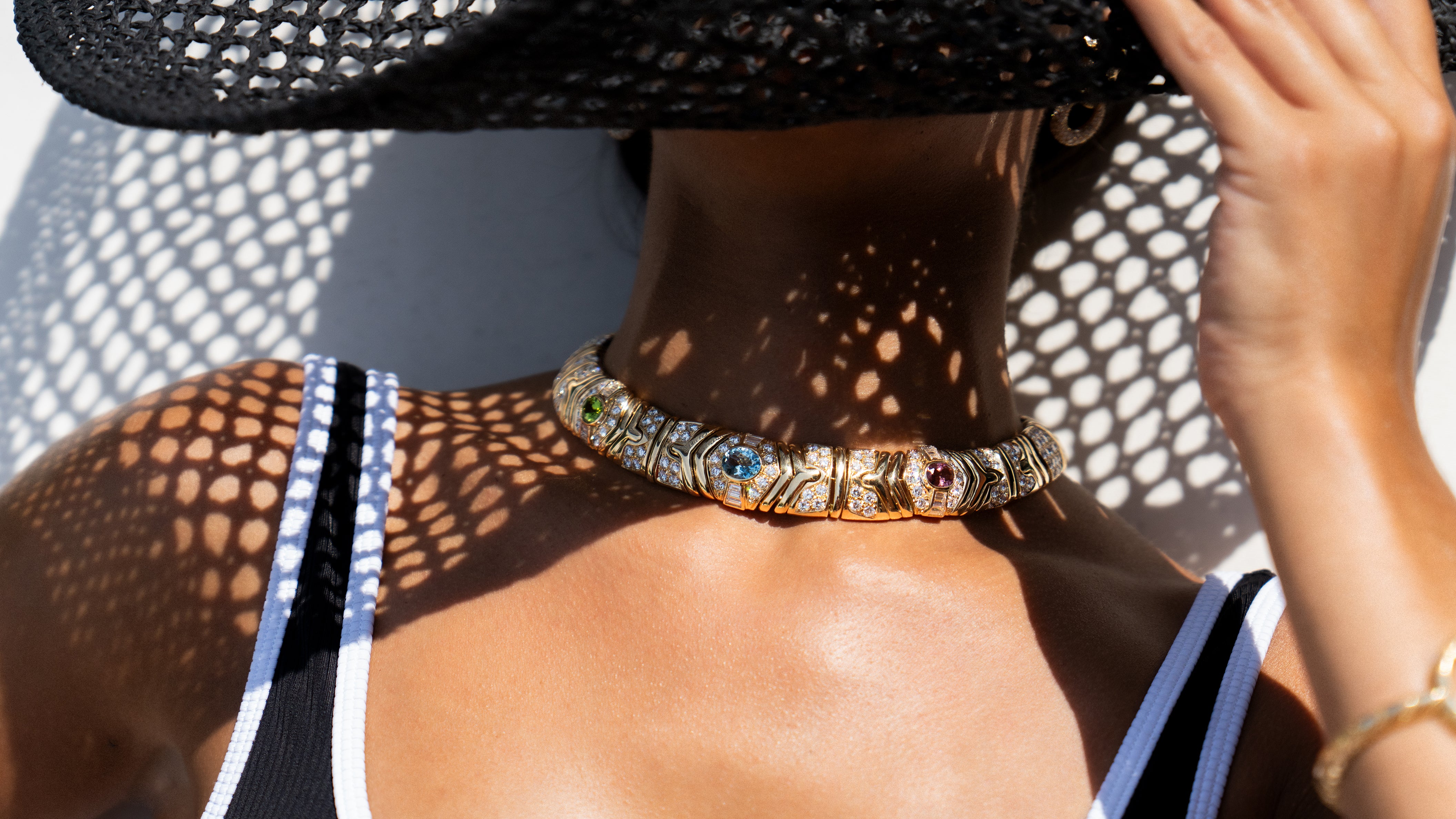Harrry Winston: The Man Dubbed the “King of Diamonds”
When it comes to diamonds, few names resonate like that of Harry Winston, who was destined to recognize fabulous jewels from an early age.
Some Early History
Born in 1896, Winston’s parents emigrated from Ukraine to the US. Winston’s father started a small jewelry business. Under the training of his father, Winston was able to recognize a 2-carat emerald in a pawnshop that purchased for 25 cents, and he sold for $800 two days later.
Winston went on to start his own business in 1920, which became quite successful. In 1926 he was able to purchase the jewelry collection of Arabella Huntington, who was the wife of a famed railroad magnate. Huntington had one of the most sought after collections of jewelry, which consisted of French pieces by Cartier and other designers. Although valuable, the works were somewhat old fashioned, so Winston reworked the jewelry into more modern designs, which showcased both his creativity and craftsmanship abilities.
Branching Out
The first Harry Winston store opened in 1932, and three years later, Winston purchased the famed Jonker diamond. It was rough, uncut, and weighed 726-carats. Winston had the diamond mailed to him via regular registered mail. Once the stone arrived safely, it was cut into twelve smaller stones, the largest of which was an emerald cut diamond weighing 125.35-carats. In 1938 Winston purchased a slightly larger, 726.6-carat rough, Brazilian diamond named Vargas.
In the 1940s, Winston introduced the technique of clustering, where the stones dictated the design instead of using the setting as inspiration. One such piece – the Winston Cluster – became iconic and gave rise to the Lily Cluster Collection in 2010. Letting the stones determine the setting made the gems shine more brilliantly.
Known Under Many Names
Winston lent diamonds to Jennifer Jones, who was attending the Academy Awards in 1944. She won the Oscar for Best Actress. It was then that Winston was given the name “Jeweler to the Stars,” but his other moniker of “The King of Diamonds” also stands true.


Famous Acquisitions
In 1948 Winston acquired both the 94.8-carat Star of the East and the rare, blue Hope Diamond, which weighed 45.52-carats. The Hope Diamond had been in the collections of Marie Antoinette, Louis XIV, and Lord Henry Hope. Winston donated the diamond to the Smithsonian in 1958, and the donation helped the museum open the National Gem Collection. The Smithsonian later named the gallery that housed the gem after Winston.
Also concerned about philanthropy, Winston allowed for some of his gemstones to go on tour from 1949-1953. The proceeds from The Court of Jewels benefited local charities. In 1960 Henry Winston’s salon, design studio, and archives moved to its permanent home at 718 5th Avenue in New York City, and more diamonds were in the future for Winston.
The Taylor-Burton Diamond was a flawless, 69.42-carat, pear-shaped gemstone that Richard Burton purchased for his wife, Elizabeth Taylor, in 1966. In 1968 the 601-carat Lesotho Diamond produced 18 gems, including a 40.42-carat marquise cut ring given to Jacqueline Kennedy as an engagement ring from Aristotle Onassis.
During the bicentennial of the United States in 1976, the Star of Independence Diamond was a 75.52-carat, D, flawless diamond cut from a 204-carat piece of a rough diamond. It’s no wonder that Winston is dubbed “The King of Diamonds!”
The Later Years
Winston died in 1978 and left the company to his two sons – Ronald and Bruce – who continued to fight for a decade. Ronald collaborated with Fenway Partners and bought out Bruce’s portion for $54.1 million. Harry Winston continued to move on by introducing timepieces in 1989 and its Opus Series in 2001. They also opened a timepiece manufacturing location in Geneva in 2007.
Although he is deceased, the company has carried on Winston’s love for transforming gemstones into art. In 2013 Harry Winston acquired the Winston Legacy Diamond, a 101.73-carat, flawless, colorless, pear-shaped stone. Christie’s auction stated that it was the most perfect diamond that they had ever had for sale at auction.
Today, Harry Winston has retail locations worldwide in cities such as Paris, London, Beijing, and Singapore, with its design and corporate headquarters based in New York City. The principles of a man who revolutionized modern jewelry design and offered quality over compromise still influences the Harry Winston company today.

